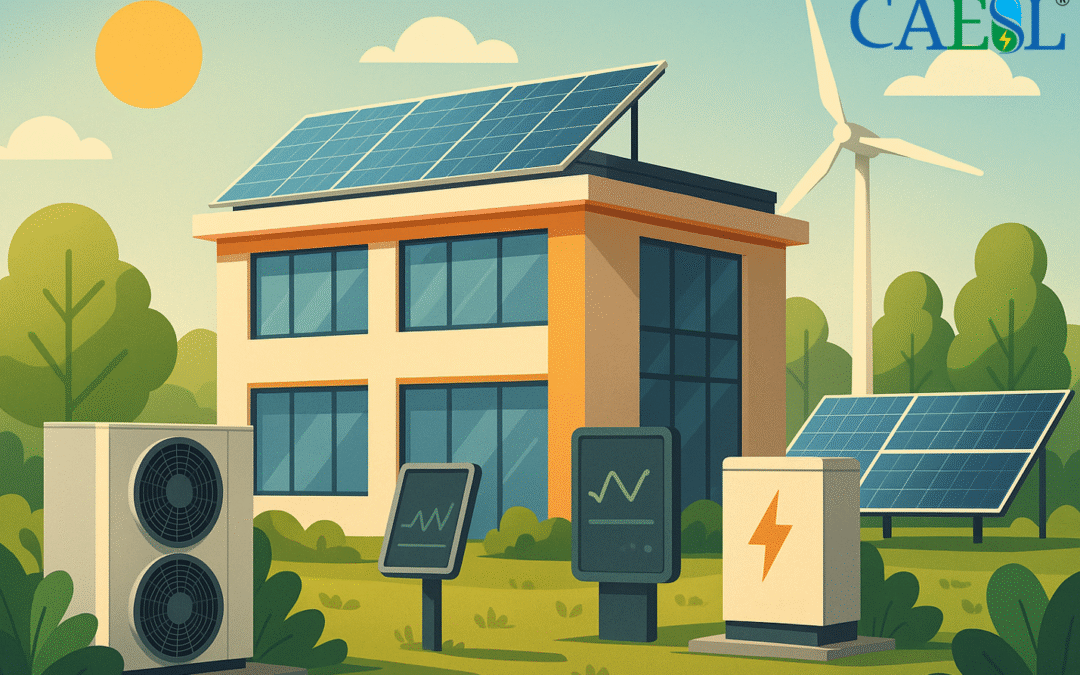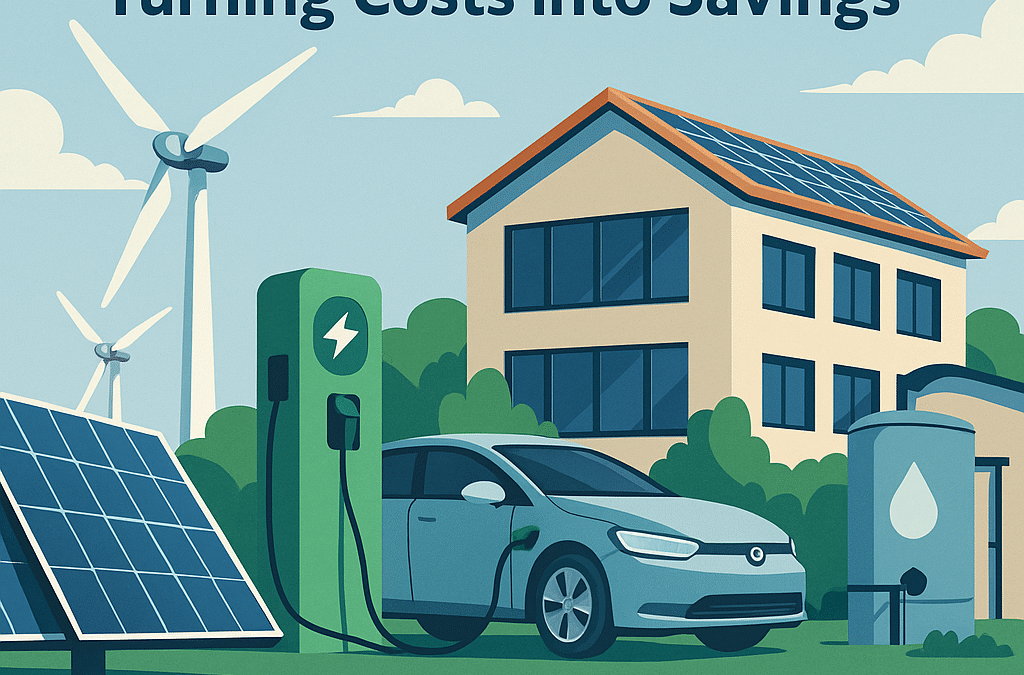The UK has taken another important step toward a credible Net Zero strategy. Energy companies Centrica and National Gas have completed the nation’s first full-scale hydrogen blending trial, successfully injecting a 2% mix of green hydrogen into the National Transmission System. Power from the Brigg Power Station is now feeding clean energy directly into the public grid.
This achievement highlights the potential of hydrogen blending as a low-carbon solution. It also reflects how novel services like CAESL’s EPC_Plus Consultancy are reshaping the UK’s approach to energy efficiency, Energy Performance Certificate (EPC) compliance, and Net Zero transition planning.

Why Hydrogen Blending Matters to EPC_Plus and Net Zero
Hydrogen is emerging as a vital enabler for decarbonising hard-to-electrify sectors such as heavy industry, manufacturing, and power generation. The UK’s blending trial proves the technical and commercial feasibility of integrating hydrogen safely into existing energy networks.
Even modest blends — for example, 2% to 5% — can lower the carbon intensity of national gas supplies. As a result, organisations can strengthen their EPC performance ratings, reduce emissions, and prepare for future EPC compliance standards that reflect blended-fuel systems.
Through EPC_Plus Consultancy, CAESL helps clients analyse how hydrogen, renewables, and smart technologies can jointly enhance building performance, energy efficiency, and EPC certification outcomes.
What EPC_Plus Consultancy Delivers
CAESL’s EPC_Plus Service goes beyond standard EPC assessments. It integrates data analytics, on-site energy performance analysis, and smart technology recommendations to deliver a practical roadmap for decarbonisation.
Through EPC_Plus, organisations gain more than an Energy Performance Certificate (EPC) — they receive a strategic energy transformation plan. The service combines EPC consultancy, Net Zero planning, and renewable integration strategies, aligning business operations with the UK’s long-term sustainability goals.
EPC_Plus includes:
-
Detailed EPC assessments and certification compliant with UK EPC legislation.
-
Action-oriented recommendations to improve EPC ratings.
-
Integration of Smart Solar Panels, hydrogen systems, and IoT energy optimisation.
-
Cost-benefit analysis for efficiency upgrades and renewable energy adoption.
By connecting data, performance, and sustainability goals, EPC_Plus transforms EPC compliance into a continuous improvement process that directly supports carbon footprint reduction and corporate sustainability.
The Road Ahead: Integrating Hydrogen and EPC_Plus
Moving from trial to large-scale implementation will require collaboration between government, industry, and EPC professionals. Therefore, our EPC consultants recommend focusing on three main areas:
1. Regulatory Certainty
Businesses need clear guidelines on hydrogen blend limits (2%, 5%, or more) and their implications for EPC ratings. Future EPC assessments and energy audits should include hydrogen compatibility, especially for commercial EPC services.
2. Infrastructure Planning
Pipeline materials, compressors, and system efficiency must be reviewed as part of EPC+ energy audits. These upgrades can be combined with Smart Solar Panels, AI Solar Technology, and IoT energy systems for holistic performance improvement.
3. Strategic Positioning
Forward-looking organisations should prepare early. Incorporating hydrogen and renewables through EPC_Plus Consultancy offers both economic and environmental advantages. It enhances EPC for businesses, ensures long-term compliance, and positions companies as leaders in the UK’s Net Zero transition plan.
Complementary Role of Smart Solar Panels and AI-Driven Technology
Hydrogen blending is a complement, not a competitor, to electrification. At CAESL, our Smart Solar Panels and AI-driven cooling technologies, such as TASHEX Technology UK, improve solar panel efficiency by up to 30%.
When these solutions are integrated within EPC_Plus Consultancy, they create a comprehensive renewable energy optimisation framework. This approach supports:
-
Reduced energy costs and operational emissions.
-
Higher EPC performance ratings.
-
Long-term resilience through AI-enabled solar and hydrogen systems.
Together, EPC_Plus, hydrogen blending, and Smart Solar Panels make Net Zero achievable, scalable, and commercially viable.
Looking Ahead
The success of the UK’s hydrogen blending trial shows that incremental innovation leads to systemic change. It proves that small advances — from hydrogen integration to EPC+ performance optimisation — are building a resilient and sustainable energy future.
At CAESL, our mission is to help organisations take that next step. Through EPC_Plus Consultancy, Net Zero services, and smart renewable solutions, we support clients in transforming compliance into opportunity.
✅ Prepared by Milad Khodsiani and Seyed Sadr, CAESL
📩 Book your EPC_Plus assessment or Net Zero strategy consultation today: Services@caesl.co.uk
💡 Empowering organisations to achieve performance, compliance, and sustainability in one integrated service.



